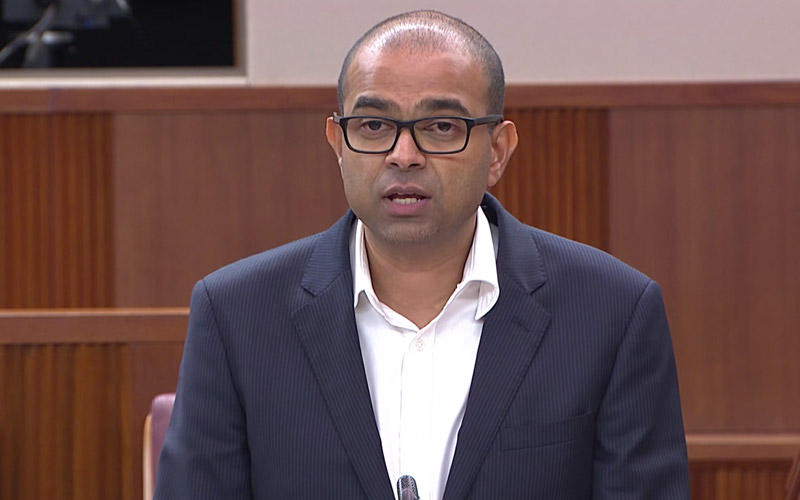Singapore is looking forward to a period of sustained cooperation and engagement with India as there are tremendous opportunities for growth and development for both countries, the city state’s Senior Minister of State Dr Janil Puthucheary said.
The minister was addressing the media at the Singapore launch of a book titled Seven Decades of Independent India: Ideas and Reflections yesterday. The book has been co-authored by Vinod Rai, former Comptroller and Auditor General of India and currently a distinguished visiting research fellow at the Institute of South Asian Studies (ISAS), and Dr Amitendu Palit, senior research fellow and research lead, ISAS.
“We anticipate, and we support an economically robust India,” the Senior Minister of State in the Communications, Information and Transport said, adding, “There are tremendous opportunities for growth and development for both countries.” Referring to the landmark initiatives undertaken by India like Digital India, Startup India, the efforts around electronic payments, national digital identity, etc., Puthucheary said Singapore looked up to India to understand how to transform its economy and become a smart nation. The minister said he looked forward to a period of sustained cooperation and engagement between the two countries.
“The forward-looking vision and outward-oriented approach of both countries have brought us both great benefits. We are always keen to learn from each other,” he added. He said Singapore looked forward to India being a country that continued to set examples of progress in science, social structure and creative entrepreneurship. “To that extent, it is important for all of us to know more about India – what she is, what she has gone through – which will provide the context of what she might become.
“So, understanding the last seven decades of independent India will be very important to us, and this book is an excellent place to start,” Puthucheary said. Singapore has been following India’s development and progress closely. Despite the great difference in size, there are a number of similarities – political practices, the role of institutions, legal systems and education, he pointed out.



